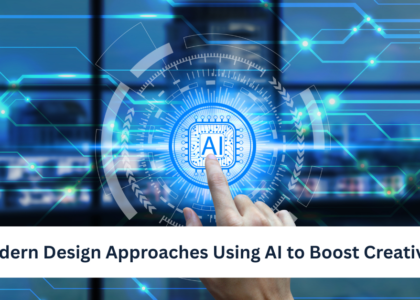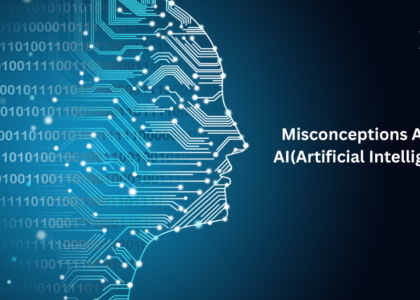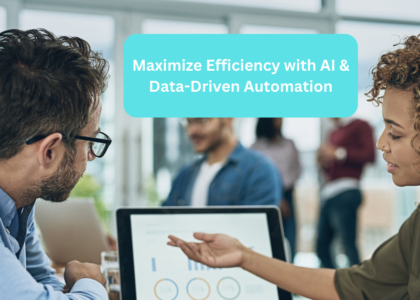Introduction
Health and wellness have taken center stage in recent years, and personalized diet plans are becoming more accessible than ever. Instead of relying on generalized nutrition advice, individuals can now receive customized meal plans based on their unique needs. This shift is largely thanks to advancements in data analysis and smart algorithms that assess everything from genetic makeup to daily habits.
Understanding Personalized Nutrition
Traditional diet plans often follow a one-size-fits-all approach, but each person has different dietary requirements. Factors such as metabolism, activity level, allergies, and even gut microbiome composition influence how the body processes food. By collecting and analyzing this information, modern systems can suggest tailored meal plans that support overall health and fitness goals.
The Science Behind Custom Diet Plans
The effectiveness of personalized nutrition lies in its ability to assess multiple health indicators, including:
- Genetic Testing – DNA analysis helps determine an individual’s predisposition to certain foods, intolerances, and nutrient absorption efficiency.
- Biometric Tracking – Wearable devices monitor key metrics like blood sugar levels, sleep quality, and activity levels.
- Gut Microbiome Analysis – Research suggests gut bacteria influence metabolism and digestion, making it a crucial factor in personalized meal planning.

How Technology Enhances Meal Planning
Through digital tools, individuals can input their health goals, dietary restrictions, and food preferences to generate customized meal recommendations. These tools utilize vast amounts of nutritional data, tracking eating patterns and adjusting recommendations accordingly. Some systems also integrate wearable devices to monitor real-time biometrics like blood sugar levels and heart rate, ensuring the recommendations align with the body’s actual needs.
Features of Smart Meal Planning Systems
- Personalized Meal Suggestions – Users receive recommendations tailored to their unique health profiles.
- Nutrient Optimization – Algorithms ensure daily meals contain balanced proportions of macronutrients and essential vitamins.
- Integration with Health Trackers – Syncing with fitness and health monitoring apps allows continuous updates to meal plans.
- Dietary Restriction Filters – Whether vegan, gluten-free, or allergen-sensitive, meal plans adapt to individual dietary needs.
- Meal Prepping and Grocery Lists – Some apps generate shopping lists based on meal recommendations, making healthy eating more convenient.

Benefits of a Data-Driven Approach
1. Personalized Recommendations
Instead of generic guidelines, individuals receive meal plans tailored to their body’s specific requirements. This ensures higher adherence and better results.
2. Improved Health Tracking
Ongoing monitoring helps users stay on track with their goals, whether it’s weight loss, muscle gain, or managing chronic conditions.
3. Enhanced Nutrient Intake
By considering deficiencies and nutritional needs, meal plans ensure balanced diets rich in essential vitamins and minerals.
4. Adaptive Meal Plans
As health metrics and lifestyle changes occur, meal suggestions evolve, keeping up with an individual’s shifting dietary needs.
5. Increased Motivation and Accountability
With regular progress tracking and tailored suggestions, users are more likely to stay committed to their diet plans.
Challenges and Considerations
While personalized nutrition has immense benefits, there are challenges to consider:
- Privacy Concerns – Users must be cautious when sharing personal health data.
- Cost of Advanced Testing – DNA and microbiome tests can be expensive.
- Dependence on Technology – Over-reliance on digital tools may lead to decreased intuitive eating skills.
The Future of Customized Nutrition
The growing accessibility of data-driven meal planning is making it easier for people to adopt sustainable and effective eating habits. As advancements continue, nutrition planning will likely become even more precise, integrating new health insights and providing even greater convenience. Future developments may include AI-assisted nutrition coaching, real-time metabolic tracking, and greater accessibility to personalized food delivery services.

FAQs About Personalized Nutrition
1. How does personalized nutrition work?
Personalized nutrition uses data from genetic tests, biometrics, and dietary habits to create customized meal plans tailored to an individual’s unique needs.
2. Are personalized diet plans expensive?
While some advanced testing methods can be costly, many affordable digital tools provide customized meal plans without requiring expensive tests.
3. Can these diet plans help with medical conditions?
Yes, personalized nutrition can help manage conditions like diabetes, heart disease, and food allergies by providing tailored meal recommendations.
4. Are there risks in using personalized diet plans?
The primary risks include privacy concerns regarding health data and the potential for over-reliance on digital tools instead of developing intuitive eating habits.
5. How do I start with personalized nutrition?
Begin by using a trusted meal planning app, consulting with a nutritionist, or undergoing health assessments to determine your dietary needs.
6. Can technology replace a human nutritionist?
While digital tools enhance meal planning, they should complement professional guidance rather than replace personalized care from a qualified nutritionist.
Conclusion
Personalized diet plans, powered by technological advancements, offer a tailored approach to nutrition that takes into account an individual’s unique health profile. By leveraging data from genetic testing, biometrics, and dietary habits, these systems help people make informed choices, leading to improved health outcomes. As technology continues to evolve, personalized nutrition will become more widespread, enabling individuals to take greater control of their health.






